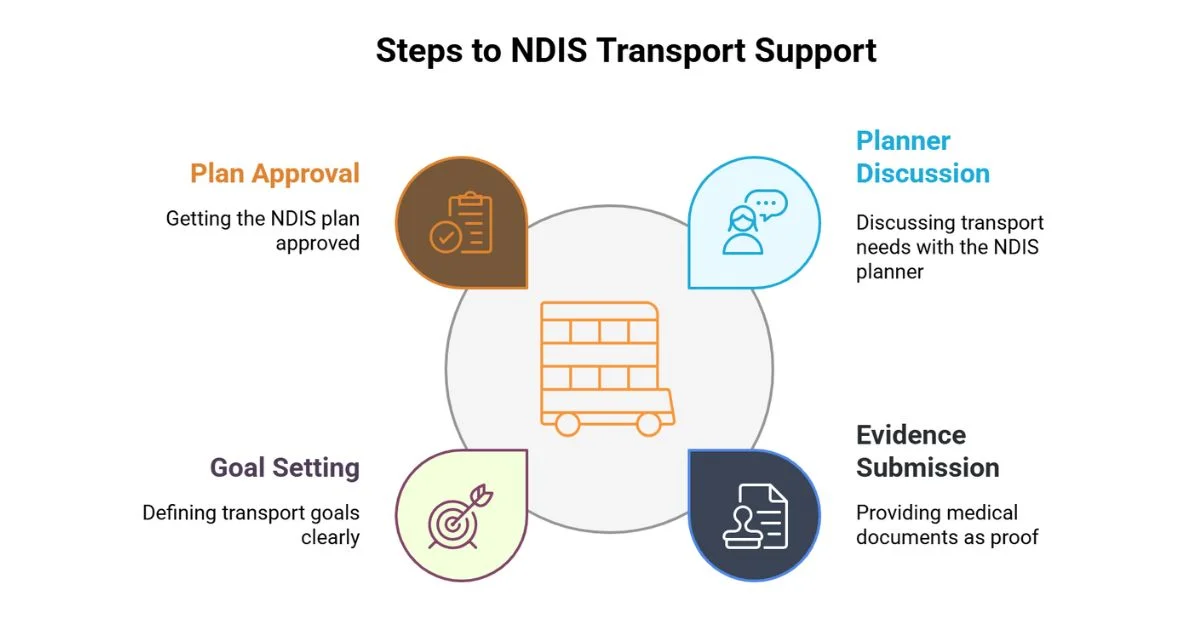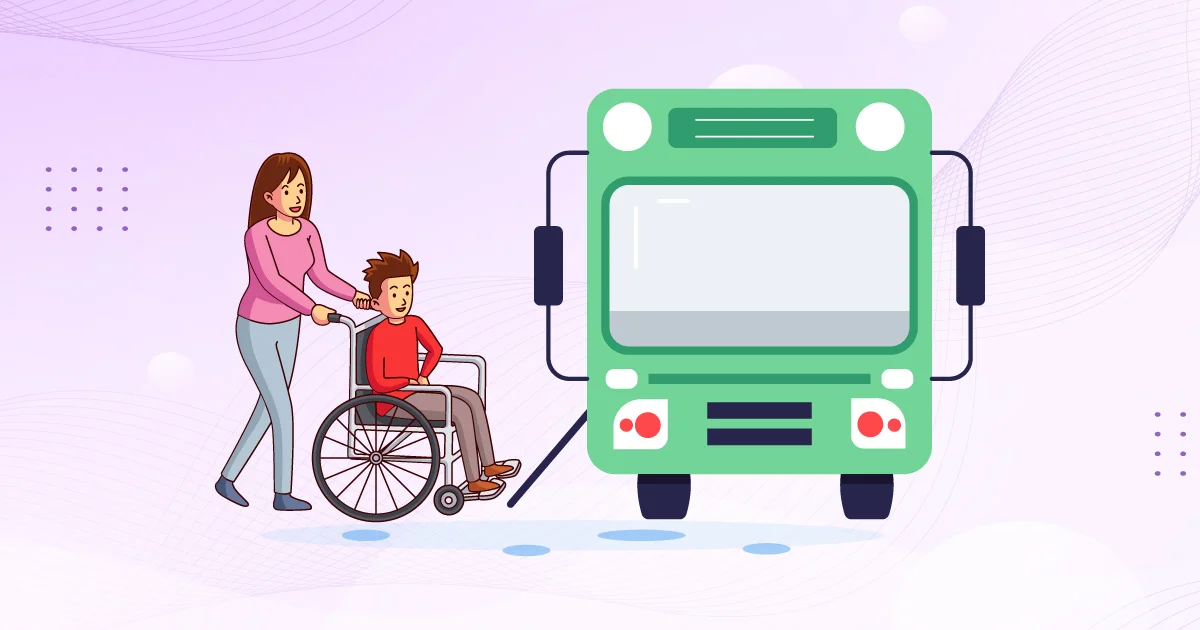The National Disability Insurance Scheme (NDIS) is designed to support people with disabilities in Australia. One important part of this support is NDIS Transport Support, which helps participants travel to and from different places safely and comfortably. In this blog, we will explore what NDIS transport support is, who can access it, how it works, and how it benefits participants.
What is NDIS Transport Support?
NDIS Transport Support provides funding to help people with disabilities travel from one place to another. This could include going to work, attending medical appointments, visiting friends and family, or participating in social activities. The goal is to give individuals greater independence and access to their communities.
Who Can Access NDIS Transport Support?
Not all NDIS participants receive transport support. This funding is provided to individuals who cannot use public transport due to their disability. To qualify, you must meet certain criteria:
- You have a permanent disability that affects your ability to travel independently.
- You need assistance from a support worker or special transport services.
- You require transport support to reach essential places like work, school, or medical facilities.
If you meet these conditions, NDIS may include transport support in your plan to help you travel safely and conveniently.
Types of NDIS Transport Support
NDIS transport funding is divided into three levels based on the participant’s needs:
Level 1: Basic Transport Support
- For individuals who travel occasionally.
- Includes a small amount of funding to help cover basic transport needs.
Level 2: Regular Transport Support
- For individuals who need transport several times a week.
- Helps cover transport costs for work, study, and social activities.
Level 3: High-Level Transport Support
- For individuals who need transport every day.
- Covers the cost of specialised transport services and support workers.
Your funding level is decided based on how often you travel and the kind of support you need.
How Does NDIS Transport Funding Work?
NDIS does not directly provide transport services but funds participants to arrange their transport. Here’s how it works:
- Self-Managed: You receive funding and arrange transport yourself, paying for services as needed.
- Plan-Managed: Your NDIS plan manager handles transport payments for you.
- NDIA-Managed: The National Disability Insurance Agency (NDIA) pays transport providers directly.
You can choose the option that best suits your needs and preferences.
What Transport Services Are Covered?
NDIS transport funding can be used for a variety of services, including:
- Taxis and Rideshares: Covering the cost of taxi or Uber rides when public transport is not an option.
- Specialist Disability Transport: Services that provide wheelchair-accessible vehicles and trained drivers.
- Public Transport Costs: Assistance for bus, train, or tram fares when needed.
- Support Worker Transport: If you need a support worker to travel with you, their costs may also be covered.
- Vehicle Modifications: Funding to modify a private vehicle to suit your disability needs.
It’s important to check your NDIS plan to see what transport supports are included.
How to Apply for NDIS Transport Support?
If you think you need transport support, follow these steps:

- Talk to Your NDIS Planner: During your NDIS planning meeting, explain why you need transport support.
- Provide Evidence: Show medical documents or reports that confirm you need transport assistance.
- Set Goals: Clearly state why you need transport (e.g., getting to work, attending therapy, or social outings).
- Get Your Plan Approved: If your request is approved, transport funding will be included in your plan.
If you already have an NDIS plan but need more transport support, you can request a plan review.
Benefits of NDIS Transport Support
NDIS Transport Support provides participants with greater independence, allowing them to travel without relying on family or friends. It offers access to opportunities, helping individuals reach jobs, education, and community activities. With this support, participants enjoy a better quality of life, engaging in social events and maintaining an active lifestyle. Additionally, safety and comfort are ensured through specialised transport services, making travel more secure and convenient. Overall, NDIS transport support empowers individuals with disabilities, giving them the freedom to move around confidently and fully participate in their communities.
Choosing the Right Transport Provider
When selecting a transport provider, consider:
- Experience: Look for providers experienced in assisting people with disabilities.
- Accessibility: Ensure they offer wheelchair-accessible vehicles if needed.
- Reliability: Choose providers known for being on time and professional.
- Cost: Check if the pricing aligns with your NDIS funding.
Many NDIS-approved transport providers are available, so take time to find one that meets your needs.
Conclusion
NDIS Transport Support is essential in helping people with disabilities travel safely and independently. Whether for work, school, medical appointments, or social outings, having the right transport assistance can significantly enhance the quality of life and freedom. If you or someone you know requires transport support, speak with an NDIS planner to explore the best options available.
Travel with confidence! Outside The Box Support provides transport solutions that help you stay independent and connected. Contact us today!

